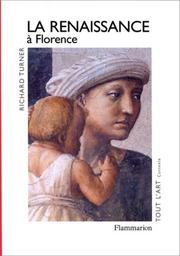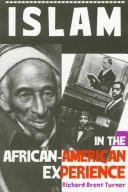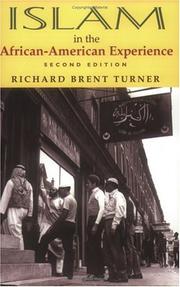Book
ISBN: 1119984599 Year: 2023 Publisher: Hoboken, New Jersey : John Wiley & Sons, Incorporated,
Abstract | Keywords | Export | Availability | Bookmark
 Loading...
Loading...Choose an application
- Reference Manager
- EndNote
- RefWorks (Direct export to RefWorks)
A toolkit for entrepreneurial success In The Essential Entrepreneur, celebrated entrepreneur and business strategist Richard Turner delivers a practical, step-by-step approach to starting and growing a thriving enterprise. If you're ready to take your fledgling business to the next level--and finally follow that brilliant big idea--this guide covers everything you'll need to navigate the challenges ahead. Richard shares straightforward advice and hands-on, real-world lessons outlining the key points you need to know to start and grow your venture. And his lessons are supported by the experience and wisdom of a panel of diverse experts: Tobi Pearce (co-founder of SWEAT), Flavia Tata Nardini (of Fleet Space), Simon Haigh (of Haigh's Chocolates), and Kirsten Bernhardt (skilled investment manager). You'll discover how to: Make a splash in your industry by taking advantage of market weaknesses, disrupting the status quo and creating new openings Sort the good ideas from the bad: validate your business (whether it's a product or a service) and maximise its value Position your brand so that what you do is clear and instantly recognisable Create a business plan that really works, factoring in timing, going to market, managing finance, managing growth and more Understand the logistics of a successful and profitable operation, from sourcing suppliers to production, warehousing and distribution Most small businesses struggle to get moving. This is the book that will help you get ahead in the race. A can't-miss resource for start-up entrepreneurs and business owners, The Essential Entrepreneur outlines everything you need to know to hit the ground running.

ISBN: 2080122886 Year: 1997 Publisher: Paris Flammarion
Abstract | Keywords | Export | Availability | Bookmark
 Loading...
Loading...Choose an application
- Reference Manager
- EndNote
- RefWorks (Direct export to RefWorks)

ISBN: 0253211042 Year: 1997 Publisher: Bloomington ; Indianapolis Indiana University Press
Abstract | Keywords | Export | Availability | Bookmark
 Loading...
Loading...Choose an application
- Reference Manager
- EndNote
- RefWorks (Direct export to RefWorks)
African Americans --- Islam --- Religion. --- United States --- Religion
Book
ISBN: 0253025125 9780253025128 9780253024947 0253024943 Year: 2017 Publisher: Bloomington
Abstract | Keywords | Export | Availability | Bookmark
 Loading...
Loading...Choose an application
- Reference Manager
- EndNote
- RefWorks (Direct export to RefWorks)
An examination of the musical, religious, and political landscape of black New Orleans before and after Hurricane Katrina, this revised edition looks at how these factors play out in a new millennium of global apartheid. Richard Brent Turner explores the history and contemporary significance of second lines--the group of dancers who follow the first procession of church and club members, brass bands, and grand marshals in black New Orleans's jazz street parades. Here music and religion interplay, and Turner's study reveals how these identities and traditions from Haiti and West and Central Africa are reinterpreted. He also describes how second line participants create their own social space and become proficient in the arts of political disguise, resistance, and performance.
African Americans --- Jazz --- Afro-Americans --- Black Americans --- Colored people (United States) --- Negroes --- Africans --- Ethnology --- Blacks --- Accordion and piano music (Jazz) --- Clarinet and piano music (Jazz) --- Cornet and piano music (Jazz) --- Double bass and piano music (Jazz) --- Jazz duets --- Jazz ensembles --- Jazz music --- Jazz nonets --- Jazz octets --- Jazz quartets --- Jazz quintets --- Jazz septets --- Jazz sextets --- Jazz trios --- Jive (Music) --- Saxophone and piano music (Jazz) --- Vibraphone and piano music (Jazz) --- Wind instrument and piano music (Jazz) --- Xylophone and piano music (Jazz) --- Music --- Third stream (Music) --- Washboard band music --- History and criticism. --- Religious aspects --- Voodooism. --- Religious aspects. --- Black people
Book
ISBN: 0297836196 9780297836193 0297836188 9780297836186 Year: 1997 Publisher: London Calmann & King
Abstract | Keywords | Export | Availability | Bookmark
 Loading...
Loading...Choose an application
- Reference Manager
- EndNote
- RefWorks (Direct export to RefWorks)
Containing many colour illustrations, this guide to art in Renaissance Florence traces the commissioning of the works, and shows how the urban society grew from a Gothic base resting on artistic sponsorship.
CDL --- 7.034 --- Art, Italian --- Art, Renaissance --- Architecture --- Architecture, Renaissance --- Architecture, Western (Western countries) --- Building design --- Buildings --- Construction --- Western architecture (Western countries) --- Art --- Building --- Italian art --- Bamboccianti (Group of artists) --- Corrente (Group of artists) --- Cracking Art (Group of artists) --- Fronte nuovo delle arti (Group of artists) --- Geometria e ricerca (Group of artists) --- Girasole (Group of artists) --- Gruppo 1 (Group of artists) --- Gruppo Aniconismo dialettico (Group of artists) --- Gruppo di Como (Group of artists) --- Gruppo di Scicli (Group of artists) --- Gruppo Enne (Group of artists) --- Gruppo Forma uno (Group of artists) --- Italiens de Paris (Group of artists) --- Mutus Liber (Group of artists) --- Novecento italiano (Group of artists) --- Nuovi-nuovi (Group of artists) --- Origine (Group of artists) --- Sei pittori di Torino (Group of artists) --- Transvisionismo (Group of artists) --- History --- Design and construction --- Renaissance architecture --- Renaissance revival (Architecture) --- Renaissance art --- Architecture, Primitive
Book
Year: 1973 Publisher: Albany (N.Y.) : Multi-state consortium on performance-based education,
Abstract | Keywords | Export | Availability | Bookmark
 Loading...
Loading...Choose an application
- Reference Manager
- EndNote
- RefWorks (Direct export to RefWorks)
Book
Year: 1973 Publisher: Syracuse University School of Education
Abstract | Keywords | Export | Availability | Bookmark
 Loading...
Loading...Choose an application
- Reference Manager
- EndNote
- RefWorks (Direct export to RefWorks)

ISBN: 9780253216304 0253216303 Year: 2003 Publisher: Bloomington, Ind. : Indiana University Press,
Abstract | Keywords | Export | Availability | Bookmark
 Loading...
Loading...Choose an application
- Reference Manager
- EndNote
- RefWorks (Direct export to RefWorks)
Islam --- African Americans --- Noirs américains --- Religion. --- Religion
Book
ISBN: 1479849693 1479871036 Year: 2021 Publisher: New York : New York University Press,
Abstract | Keywords | Export | Availability | Bookmark
 Loading...
Loading...Choose an application
- Reference Manager
- EndNote
- RefWorks (Direct export to RefWorks)
Amid the social change and liberation of the civil rights and Black Power movements, the tenor saxophonist Archie Shepp recorded a tribute to Malcolm X's emancipatory political consciousness. Shepp saw similarities between his revolutionary hero and John Coltrane, one of the most influential jazz musicians of the era. Later, the esteemed trumpeter Miles Davis echoed Shepp's sentiment, recognising that Coltrane's music represented the very passion, rage, rebellion, and love that Malcolm X preached. This book examines the link between the revolutionary Black Islam of the post-WWII generation and jazz music. It argues that from the late 1940s and '50s though the 1970s, Islam rose in prominence among African Americans in part because of the embrace of the religion among jazz musicians.
Jazz --- African American Muslims. --- African Americans --- Internationalism --- Social aspects --- History --- Religious aspects --- Islam --- Religion.
Book
Year: 1973 Publisher: Bloomington Indiana university press
Abstract | Keywords | Export | Availability | Bookmark
 Loading...
Loading...Choose an application
- Reference Manager
- EndNote
- RefWorks (Direct export to RefWorks)

 Search
Search Feedback
Feedback About UniCat
About UniCat  Help
Help News
News